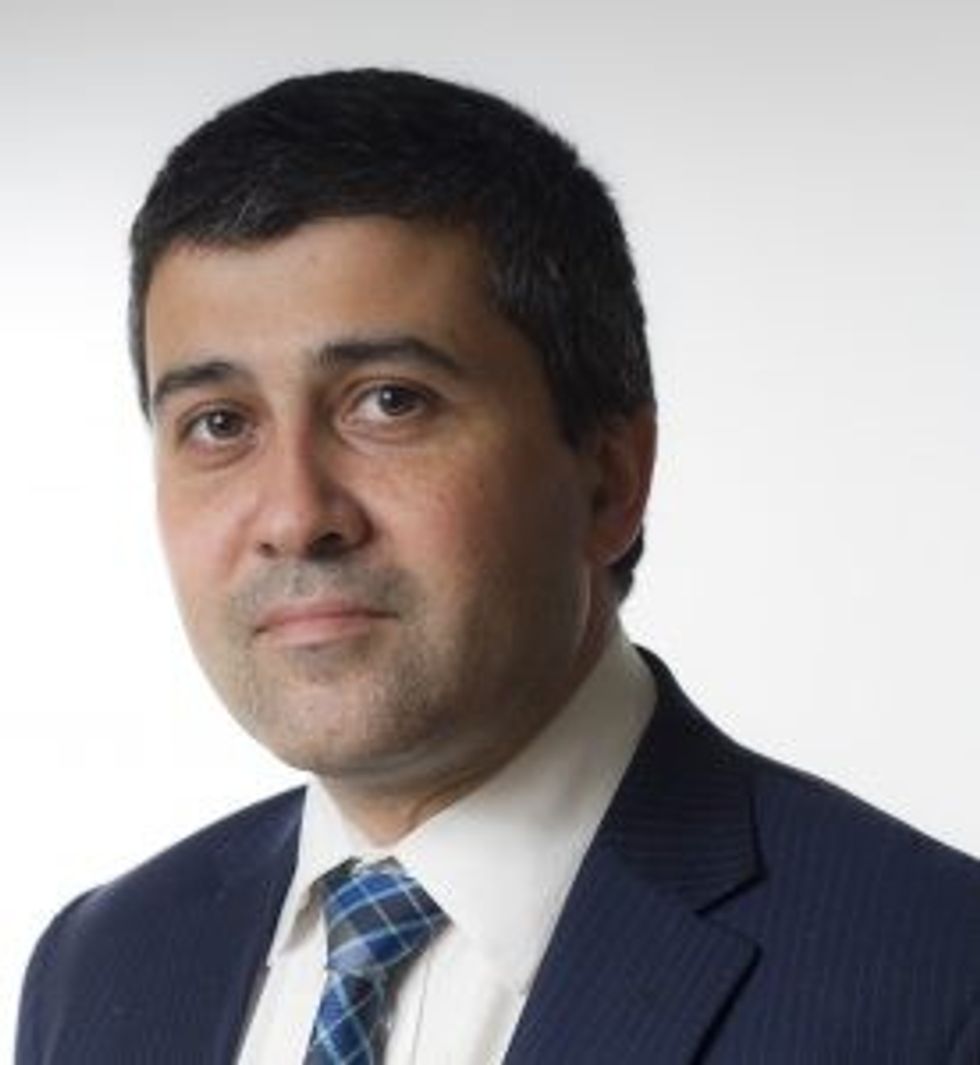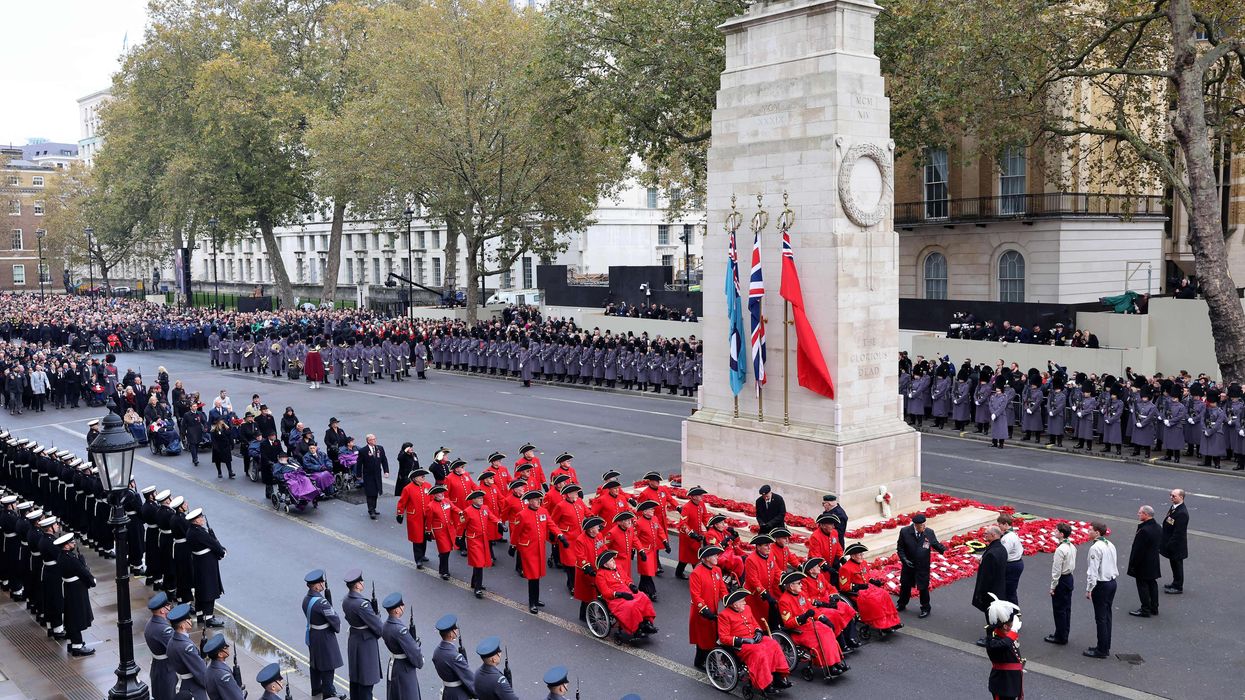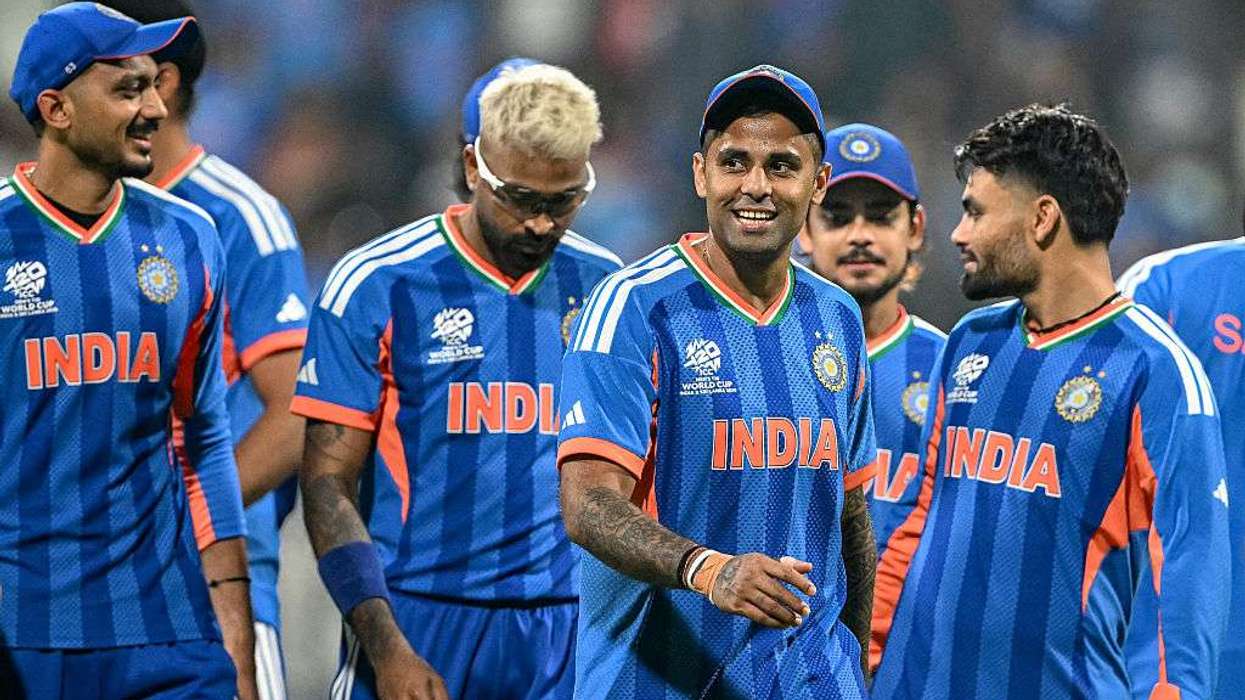Why do traditions get invented? It often happens when there are identity gaps to fill. As the guns of the First World War fell silent, new rituals of public mourning were needed. The first national two-minute silence in November 1919 became known as the “great stillness”: everyone, everywhere seemed to stop. That moment struck such a public chord that it shaped a tradition of Remembrance that we continue a century later.
Yet silence was chosen back then partly because the Britain of 1919 was such a noisy, divided and fractious country. Luton Town Hall was burned down by veterans angry at the ticket prices for the Peace Day dinner inside, and the lack of jobs that made them unaffordable. A protest rally ahead of the first anniversary of the armistice opposed the government’s decision to leave the million dead buried in foreign fields, so that only the symbolic remains of the Unknown Warrior were brought home.
Hence the Cenotaph – the Greek word for ‘empty tomb’ – being erected in Whitehall. Intended to last a week, thousands of wreaths were laid at its base in those few days, so it was commissioned again, in stone, as a permanent memorial, unveiled by the King for Armistice Day in 1920.
Edward Lutyens had designed a simple and non-denominational monument to recognise that people of all colours and creeds had died in the war. The King will recognise that again on Sunday (9), joined by faith leaders and Commonwealth High Commissioners at the Cenotaph.
The Britain of 2025 is also a noisier, more divided and more fractious society than anybody would want. There are bridges to build, and identity gaps to fill, today too.
Few things make this country prouder than Britain’s role in defeating Hitler’s Nazi Germany in the Second World War. Not everybody fully understands the breadth of the effort that involved. The armies that won the war and stood up to fascism resemble the Britain of 2025 more than that of 1945 or 1919 in their multi-ethnic and multifaith contribution. The British Indian Army of the Second World War was the largest volunteer army in history. The story of that contribution can be told in statistics – of the 2.5 million south Asians who volunteered and the 87,000 who gave their lives. But it resonates most powerfully when we hear the stories of those involved.
So the Royal British Legion has worked with artist Mahtab Hussain in 2025-2026 to take his bronze artwork, depicting Indian Army soldiers of the second world war, into community spaces around the UK. It is currently hosted at the Central Library in Liverpool. At the launch event, a new play from students from Liverpool John Moores University brought the statue to life, with stories of war, capture and escape, alongside the heroism of the spy, Noor Inayat Khan, in occupied France. The new My Family Legacy campaign is asking south Asian families across the UK to share their family stories, about the grandfathers, great-uncles and great-aunts who served in the world wars, and what that means for their families today. The grandchildren of two south
Asian veterans who passed away this year – Sergeant Mohammad Hussain and Havildar Major Rajindar Singh Dhatt – spoke of their friendship and commitment to bridging divides over the decades since. Their and other family stories will be displayed alongside the artwork as it travels around the country, as well as on a dedicated website www.myfamilylegacy.org.uk. I hope readers will visit the site and share their own family stories.
Faryal Iqbal, from Liverpool, telling the story of her grandfather, Mohammad Ali Anwar, who served as a doctor in the second world war, noted how these stories have become more important at a time when a vocal toxic minority are seeking to bring back the overt racism of the 1970s and 1980s. We are seeing the most aggressive attempt for a generation to question not just the equal status, but the very presence of ethnic minorities in Britain. They are amplified by a reckless, radicalised foreign billionaire, using his social media platform to amplify and monetise hatred and even actively socialise political violence in our country. Yet the toxic fringe on the far right is often deeply ignorant of the history of which they claim to be so proud.
One of the most important foundations for a cohesive society is to understand how our past, present and future are linked. That might be achieved best not so much by inventing traditions, but in gently reinventing the cherished traditions we already have. So it matters that there is a commitment to an inclusive spirit of Remembrance. We honour the past fully when all of those who contributed and served can be fully recognised. We bring this society together when everybody is invited to participate in recognising what we all owe to that wartime generation: a crucial foundation of the Britain that we share today.
 Sunder Katwala
Sunder KatwalaSunder Katwala is the director of thinktank British Future and the author of the book How to Be a Patriot: The must-read book on British national identity and immigration.





